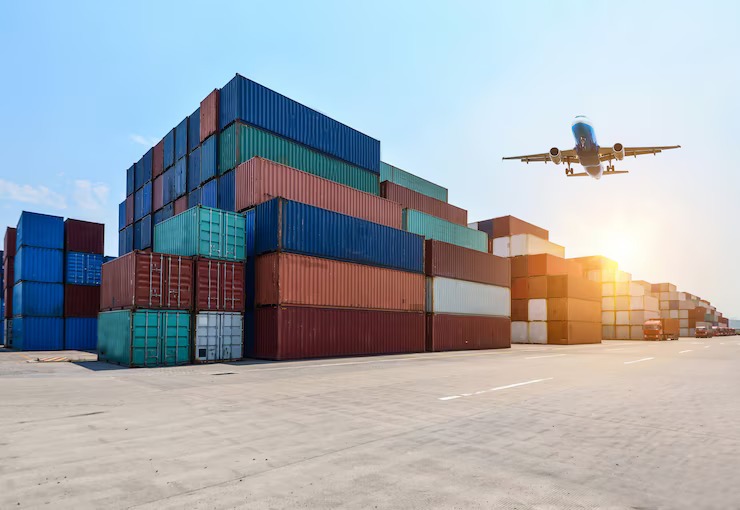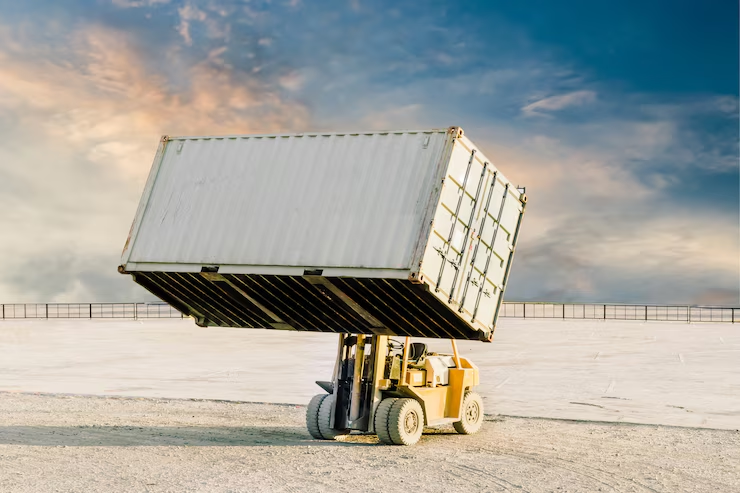
Freight forwarding plays a pivotal role in the global supply chain, acting as the bridge between manufacturers, suppliers, and customers. As businesses increasingly rely on freight forwarders to manage complex logistics, the industry is undergoing significant transformations driven by new trends and innovations. In this evolving landscape, staying ahead of emerging technologies and practices is crucial for both freight forwarders and their clients.
Let’s dive into the future of freight forwarding, examining the trends and innovations shaping the industry.
1. Digitalization and Technology Integration
One of the most significant changes in freight forwarding is the widespread adoption of digital technologies. The industry is shifting from traditional paper-based processes to automated, data-driven systems. Freight forwarders are increasingly turning to software solutions for better visibility, speed, and efficiency in cargo management.
Cloud-based platforms, real-time tracking systems, and data analytics are transforming how cargo is managed and monitored. These innovations allow logistics companies to provide seamless updates, track shipments in real-time, and optimize routes for cost and time efficiency. Additionally, the integration of Artificial Intelligence (AI) and Machine Learning (ML) is helping freight forwarders predict delays, optimize cargo loading, and enhance overall customer experience.
By embracing these technologies, freight forwarders in India, especially those in major logistics hubs like Mumbai, are streamlining operations, reducing manual errors, and improving overall service quality.
2. Automation and Robotics
Automation is rapidly becoming a game-changer in freight forwarding. From warehouse operations to last-mile delivery, the use of robotics is streamlining many traditional logistics processes. Autonomous vehicles, and robotic sorting systems are reducing human error, increasing efficiency, and accelerating the overall shipping process.
For example, autonomous trucks are being tested for long-haul cargo transportation, promising to reduce fuel costs and enhance delivery speed. Meanwhile, drones are making their mark in last-mile delivery, especially in areas that are difficult to reach by traditional vehicles.
By adopting these technologies, freight forwarders can offer faster and more cost-effective services, ultimately enhancing the customer experience.
3. Sustainability and Green Logistics
Sustainability is no longer just a buzzword – it’s an essential focus for businesses, especially in shipping and logistics. As climate change concerns grow, more freight forwarders are adopting eco-friendly practices to reduce their carbon footprint. Innovations like electric vehicles (EVs), fuel-efficient ships, and carbon-neutral shipping are gaining momentum.
Freight forwarders in India and worldwide are exploring greener solutions by optimizing routes, using energy-efficient containers, and adopting alternative fuel sources. Additionally, the concept of “green logistics” is becoming an essential part of logistics company strategies, aligning with global efforts to combat environmental degradation.
These innovations not only benefit the environment but also help businesses meet regulatory requirements and attract eco-conscious consumers who prioritize sustainability in their purchasing decisions.
4. Blockchain for Transparency and Security
Blockchain technology is emerging as a powerful tool in freight forwarding, offering secure, transparent, and immutable records of transactions. Freight forwarders are beginning to adopt blockchain to streamline and secure the supply chain process. By utilizing this decentralized ledger, cargo forwarders can ensure that shipments are accurately tracked, with every detail of the transportation process recorded.
Blockchain helps eliminate fraud, reduce paperwork, and increase trust among supply chain partners. It allows goods transport services to efficiently track payments, verify cargo details, and ensure the safety of sensitive shipments. As the demand for transparency in shipping and logistics increases, blockchain is set to play a key role in securing data and enhancing supply chain integrity.
5. Artificial Intelligence and Big Data Analytics
Artificial Intelligence (AI) and Big Data are revolutionizing how freight forwarders manage and analyze logistics operations. By leveraging AI, freight forwarders can predict demand, identify potential disruptions, and improve operational efficiencies.
Big data analytics is enabling companies to optimize their supply chains by analyzing vast amounts of data from multiple sources. This data-driven approach allows for more informed decision-making, cost reductions, and quicker responses to changing market conditions.
In the future, AI-powered platforms will likely enable air, sea cargo freight forwarders to provide even more personalized services by predicting client needs and automating routine tasks. This would allow logistics companies to focus more on strategic planning and improving customer relationships.
6. Last-Mile Delivery Innovations
The growing demand for faster and more efficient deliveries has led to innovations in last-mile delivery solutions. Consumers now expect quick, reliable shipping, especially for e-commerce orders, which has prompted freight forwarders to explore new ways to speed up this final leg of the shipping journey.
Companies are increasingly using micro-warehouses, robotic systems, and autonomous delivery vehicles to address last-mile challenges. These innovations help reduce delivery time, optimize routes, and lower transportation costs. Additionally, advanced tracking systems provide customers with real-time updates on the status of their orders, increasing transparency and satisfaction.
7. Enhanced Customer Experience and Personalization
As customer expectations evolve, freight forwarders are focusing on improving the overall customer experience. Personalization, in particular, is becoming a key differentiator for freight forwarding companies. By leveraging advanced data analytics and customer feedback, freight forwarders can tailor services to meet the unique needs of each client.
This could include offering flexible shipping options, providing custom reporting, or integrating with clients’ systems for better synchronization. The goal is to create a seamless, hassle-free experience for clients, improving satisfaction and loyalty.
Conclusion
The future of freight forwarding is exciting, driven by technological innovations and a focus on sustainability, efficiency, and customer satisfaction. Freight forwarders are embracing digitalization, automation, and advanced analytics to streamline operations and enhance service offerings. As these trends continue to shape the industry, logistics companies and cargo freight forwarders must adapt to stay competitive and meet the evolving needs of global trade.
By leveraging emerging technologies and trends, freight forwarders in India, and across the world can optimize their operations, reduce costs, and provide faster, more reliable services to their clients. The future of freight forwarding is full of possibilities, and those who innovate and embrace change will lead the way in transforming the logistics landscape.



